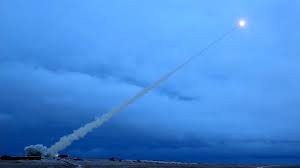
Breaking News
 Digital Euro Could Drain up to 700 Billion Euros of Deposits in Bank Run, ECB Says
Digital Euro Could Drain up to 700 Billion Euros of Deposits in Bank Run, ECB Says
 Carbon based computers that run on iron
Carbon based computers that run on iron
 FDA's War on Commonsense Nicotine Regulation
FDA's War on Commonsense Nicotine Regulation
 Russia flies strategic cruise missile propelled by a nuclear engine
Russia flies strategic cruise missile propelled by a nuclear engine
Top Tech News
 Graphene Dream Becomes a Reality as Miracle Material Enters Production for Better Chips, Batteries
Graphene Dream Becomes a Reality as Miracle Material Enters Production for Better Chips, Batteries
 Virtual Fencing May Allow Thousands More Cattle to Be Ranched on Land Rather Than in Barns
Virtual Fencing May Allow Thousands More Cattle to Be Ranched on Land Rather Than in Barns
 Prominent Personalities Sign Letter Seeking Ban On 'Development Of Superintelligence'
Prominent Personalities Sign Letter Seeking Ban On 'Development Of Superintelligence'
 Why 'Mirror Life' Is Causing Some Genetic Scientists To Freak Out
Why 'Mirror Life' Is Causing Some Genetic Scientists To Freak Out
 Retina e-paper promises screens 'visually indistinguishable from reality'
Retina e-paper promises screens 'visually indistinguishable from reality'
 Scientists baffled as interstellar visitor appears to reverse thrust before vanishing behind the sun
Scientists baffled as interstellar visitor appears to reverse thrust before vanishing behind the sun
 Future of Satellite of Direct to Cellphone
Future of Satellite of Direct to Cellphone
 Amazon goes nuclear with new modular reactor plant
Amazon goes nuclear with new modular reactor plant
 China Is Making 800-Mile EV Batteries. Here's Why America Can't Have Them
China Is Making 800-Mile EV Batteries. Here's Why America Can't Have Them
Russia flies strategic cruise missile propelled by a nuclear engine

It seems like something out of the Cold War – and in some ways, it is. However, it's not entirely a surprise in defense circles. Since December 2001, there have been reports that Russia is looking at modernizing its nuclear forces with weapons that would have the range of an Intercontinental Ballistic Missile (ICBM), yet would be able to dodge radar and avoid any anti-ballistic missile defenses.
Now, Russia is saying that just such a weapon has been constructed and flight tested.
"I remember vividly when we announced that we were developing such a weapon, even highly qualified specialists told me that, yes, it was a good and worthy goal, but unrealizable in the near future," said Putin. "This was the opinion of specialists, I repeat, highly qualified. And now the decisive tests have been completed. Much work remains to be done to put these weapons on combat alert, of course; all the regulations must be followed. Nevertheless, as far as I understand, the key objectives have now been achieved."

 China Innovates: Transforming Sand into Paper
China Innovates: Transforming Sand into Paper

